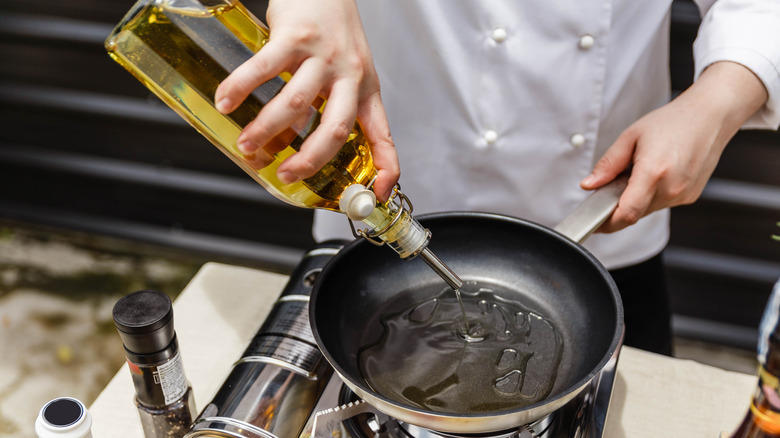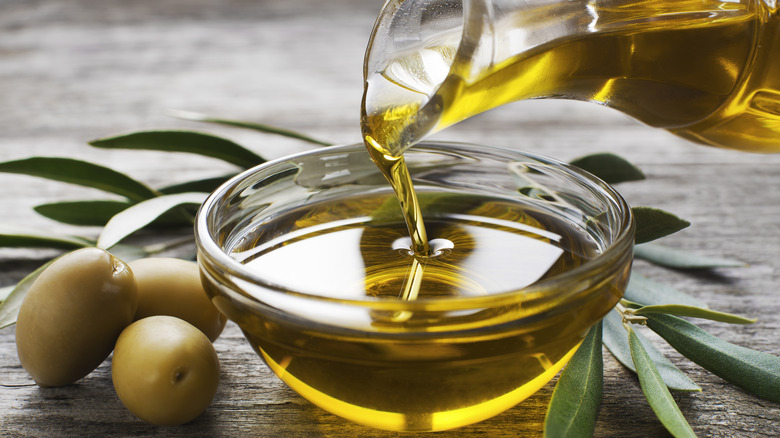Why Acidity Matters When Frying In Olive Oil
Frying, whether pan or deep frying, has been one of the main ways to cook food for millennia. According to DSL, the first record of fried foods dates all the way back to the Mesopotamia era. Nowadays, almost any food can be found in a deliciously crispy fried form, from potatoes and other vegetables, meats, and even delicious desserts and sweets.
Olive oil is often used for sauteing food and its low smoke point means that's usually the extent of its abilities (via Mountain Rose Herbs). Frying foods in olive oil is often regarded as a kitchen faux pas for this reason, with high smoke point oils like canola, peanut, and avocado oils being recommended instead. However, the stigma around using olive oil for frying is just that — a stigma. The largest factor that goes into a good frying oil is actually stability, per About Olive Oil, as well as acidity.
Oil stability
What does it mean if oil is cooking stable, and how does acidity factor into it? According to About Olive Oil, calling an oil cooking stable is another way of saying it has oxidative stability. When you expose oils to incredibly high temperatures, like those required for frying, the oil can begin to oxidize. This leaves your food with a foul taste, as well as leaves behind harmful toxins, making your food inedible.
This has very little to do with the oil's smoking point, but rather its induction time, which is how long it takes the oil to break down and oxidize. Chemically refined oils like vegetable oil, which has a high smoking point, are a lot less stable. Olive oil, from virgin to extra virgin, uses a natural process of refinement that makes it much more stable. Oils rich in antioxidants are also much more stable since they defend against the oxidation process. As Healthline explains, olive oil is lauded for being chock full of antioxidants, which is not only great for your health but makes it an ideal cooking and frying oil. While stability is an important factor for cooking with oil, it's not the only one that matters.
Acidity levels
While olive oil's cooking stability may make it a good cooking and frying oil in general, there's still a reason chefs have long warned against it. Using the wrong olive oil for frying can lead to your food having a remarkably unpleasant, bitter taste. Chef Ramón Martínez told InsideHook that the trick to avoiding this is using an olive oil low in acidity.
Martínez specifically recommends using an extra virgin olive with an acidic content of no more than 0.4%. According to OliveNation, the amount of acid in olive oil directly correlates to how much damage, or refinement, the actual olive has undergone — again, less refinement and processing means a more stable cooking and frying oil. The olive itself releases acids as they're crushed and turned into oil, so some amount is expected in the final product, but the less acidic the oil is, the higher quality and better for you it is overall. Look for this information on the bottle's label, likely near the use-by date information.


